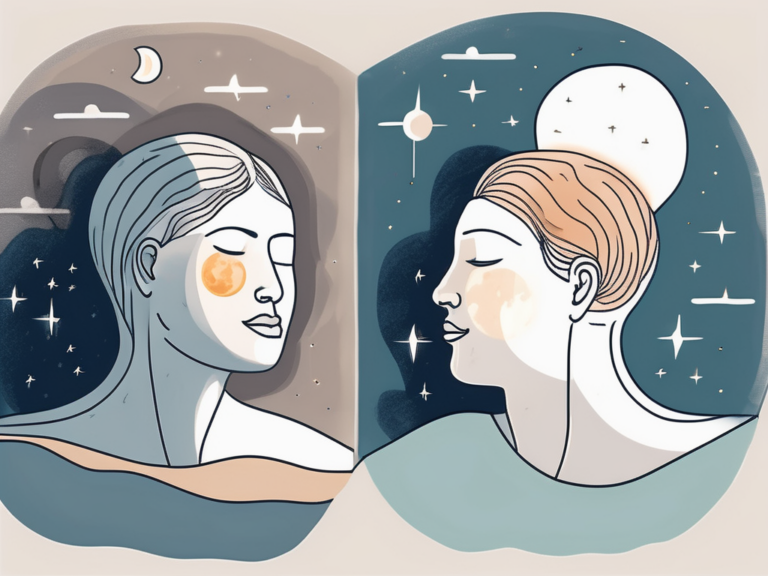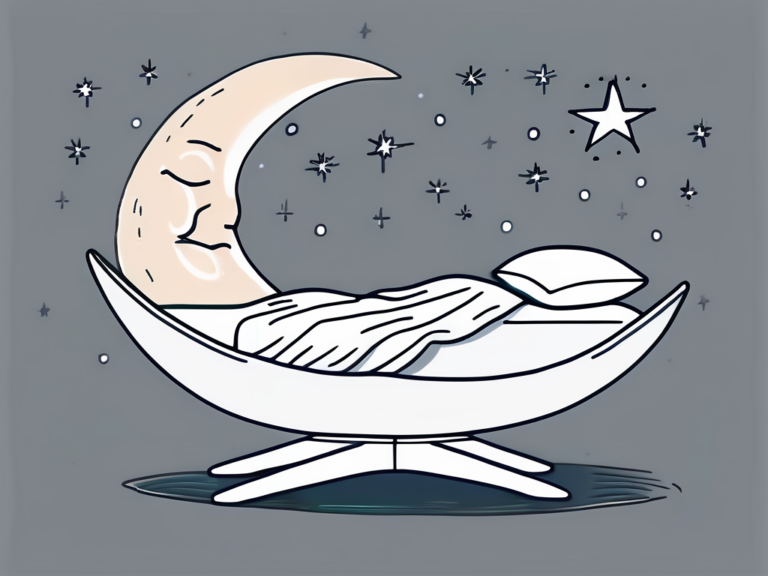Tips on How to Sleep Early
Are you someone who always stays up late, despite knowing the importance of getting enough sleep? Do you find it difficult to establish a consistent sleep routine? If so, this article is for you. In this comprehensive guide, we will explore various strategies and techniques to help you sleep early and improve your overall sleep quality. By understanding the benefits of early sleep, setting up your sleep environment, establishing a sleep routine, adapting your dietary habits, overcoming common sleep problems, incorporating exercise, and knowing when to seek professional help, you will be well on your way to achieving a healthier sleep schedule.
Understanding the Importance of Early Sleep
Before we delve into the tips on how to sleep early, let’s first explore why it is so important. Many people underestimate the significance of a good night’s sleep. Adequate sleep is essential for both our physical and mental well-being.
When we think about sleep, we often associate it with rest and rejuvenation. However, the benefits of early sleep go far beyond just feeling refreshed in the morning. In fact, research has shown that getting enough sleep can have a profound impact on our overall health and well-being.
Health Benefits of Sleeping Early
When we consistently prioritize early sleep, we reap numerous benefits. It strengthens our immune system, improves our memory and cognitive function, enhances our mood, and lowers our risk of developing chronic diseases such as obesity, diabetes, and cardiovascular problems.
But what exactly happens in our bodies when we sleep? During sleep, our bodies undergo a series of important processes. Our immune system works to repair and regenerate cells, helping us fight off infections and diseases. Our brain consolidates memories and processes information, allowing us to retain what we’ve learned and improve our cognitive abilities. Additionally, sleep plays a crucial role in regulating our hormones, including those that control appetite and metabolism.
Furthermore, studies have shown that a lack of sleep can adversely affect our metabolism, leading to weight gain and difficulties in maintaining a healthy lifestyle. When we don’t get enough sleep, our bodies produce more of the hormone ghrelin, which stimulates hunger, and less of the hormone leptin, which signals feelings of fullness. This imbalance can contribute to overeating and weight gain.
The Connection Between Sleep and Productivity
Not only does early sleep have profound effects on our health, but it also significantly impacts our productivity. When we are well-rested, we are more alert, focused, and able to concentrate on tasks. On the other hand, individuals who consistently lack sleep tend to experience reduced productivity, decreased creativity, and difficulty making decisions.
Have you ever noticed that after a night of poor sleep, it’s harder to stay focused and engaged throughout the day? This is because sleep deprivation affects our cognitive abilities, including our attention span and problem-solving skills. It can also impair our ability to regulate our emotions, making it more challenging to manage stress and maintain a positive mindset.
By prioritizing early sleep, you are investing in your productivity and overall performance in daily activities. Whether you’re a student studying for exams, a professional working on important projects, or simply someone who wants to make the most out of each day, getting enough sleep is crucial for achieving your goals.
Setting Up Your Sleep Environment
Creating the right sleep environment is crucial for ensuring a restful night’s sleep. Your bedroom should be a sanctuary, promoting relaxation and tranquility. Consider the following factors to optimize your sleep environment:
Choosing the Right Mattress and Pillows
Invest in a comfortable mattress and pillows that support your body well. Everyone’s preferences differ, so take the time to find the right fit for you. Your mattress and pillows should provide adequate support for your back and neck, allowing your body to rest in a natural alignment.
When it comes to choosing a mattress, consider factors such as firmness, materials used, and the level of support it provides. Memory foam mattresses, for example, are known for their ability to contour to your body shape, relieving pressure points and promoting better sleep. On the other hand, if you prefer a more traditional feel, an innerspring mattress might be the right choice for you.
The Role of Light and Temperature
Light and temperature play significant roles in our sleep quality. Ensure that your bedroom is sufficiently dark by using blackout curtains or blinds. Additionally, maintain a cool temperature in your bedroom to facilitate sleep. Studies have found that a slightly cooler room temperature promotes sleepiness and improves the quality of sleep.
When it comes to lighting, it’s important to create an environment that mimics natural light patterns. Consider using dimmers or soft lighting in the evening to signal to your body that it’s time to wind down. Avoid bright screens, such as smartphones or tablets, before bed as the blue light emitted can disrupt your sleep-wake cycle.
Furthermore, you can enhance your sleep environment by incorporating aromatherapy. Certain scents, such as lavender or chamomile, have been shown to promote relaxation and improve sleep quality. Consider using essential oils or scented candles to create a soothing ambiance in your bedroom.
Establishing a Sleep Routine
Creating a consistent sleep routine is one of the key pillars of sleeping early. Our bodies thrive on predictable patterns, and establishing a routine sends a signal to our internal clock that it’s time to wind down and prepare for sleep. Here are some strategies to help you establish a sleep routine:
The Power of Consistency
Go to bed and wake up at the same time every day, even on weekends. By maintaining a consistent sleep schedule, you align your body’s natural sleep-wake cycle, making it easier to fall asleep and wake up in the morning.
Relaxation Techniques Before Bed
Prior to bedtime, engage in activities that promote relaxation. This may include reading, listening to calming music, taking a warm bath, or practicing deep breathing exercises. Avoid stimulating activities such as using electronic devices or watching intense television shows, as these can interfere with your ability to fall asleep.
The Importance of a Dark and Quiet Environment
Creating a sleep-friendly environment is crucial for a good night’s rest. Ensure that your bedroom is dark and quiet. Use blackout curtains or an eye mask to block out any unwanted light. Consider using earplugs or a white noise machine to drown out any disturbing noises that may disrupt your sleep. By eliminating these distractions, you can create a peaceful atmosphere that promotes deep and uninterrupted sleep.
The Role of Physical Activity
Regular exercise can have a positive impact on your sleep quality. Engaging in physical activity during the day helps to reduce stress and anxiety, which are common culprits of sleep disturbances. However, it’s important to time your workouts appropriately. Exercising too close to bedtime can actually make it harder to fall asleep, as it raises your body temperature and stimulates your nervous system. Aim to finish your workout at least a few hours before bedtime to allow your body to cool down and relax.
Additionally, incorporating relaxation exercises into your post-workout routine can further enhance your sleep. Stretching, yoga, or even a short meditation session can help calm your mind and prepare your body for a restful night’s sleep.
Dietary Habits for Better Sleep
What we eat and drink can greatly impact our sleep quality. Making smart choices regarding our dietary habits can have a significant positive effect on our ability to sleep early and wake up refreshed. Consider the following tips:
Foods That Promote Sleep
Include foods that are rich in sleep-promoting nutrients in your diet. Some examples include foods that are high in magnesium, such as leafy greens, nuts, and seeds. Magnesium plays a crucial role in regulating neurotransmitters that promote sleep, such as GABA and melatonin. By incorporating these foods into your diet, you can enhance your body’s natural sleep mechanisms.
In addition to magnesium-rich foods, consider adding tryptophan-containing foods to your meals. Tryptophan is an amino acid that helps produce serotonin, a neurotransmitter that regulates sleep. Foods like turkey, eggs, and dairy products are excellent sources of tryptophan. By including these in your diet, you can support a more restful night’s sleep.
Furthermore, incorporating foods that regulate melatonin production can also improve your sleep quality. Melatonin is a hormone that helps regulate the sleep-wake cycle. Tart cherries and kiwi are two examples of fruits that naturally contain melatonin. By consuming these fruits, especially in the evening, you can help synchronize your body’s internal clock and promote better sleep.
Drinks to Avoid Before Bedtime
Be mindful of what you consume in the hours leading up to bedtime. Avoid consuming caffeine, nicotine, and alcohol close to bedtime, as these substances can disrupt your sleep patterns. Caffeine, found in coffee, tea, and some sodas, is a stimulant that can keep you awake. Nicotine, commonly found in cigarettes and e-cigarettes, is also a stimulant that can interfere with your ability to fall asleep. Alcohol, although it may initially make you feel drowsy, can disrupt the later stages of sleep, leading to fragmented and less restorative rest.
If you enjoy a beverage before bed, consider opting for herbal teas or warm milk. Herbal teas, such as chamomile or lavender, have calming properties that can help relax your mind and prepare your body for sleep. Warm milk contains tryptophan, which, as mentioned earlier, can promote the production of serotonin and aid in sleep. Sipping on a warm cup of herbal tea or milk can create a soothing bedtime ritual that signals to your body that it’s time to wind down and prepare for a restful night’s sleep.
Overcoming Common Sleep Problems
Many individuals face specific sleep problems that hinder their ability to sleep early. Let’s explore two common sleep problems and strategies to overcome them:
Dealing with Insomnia
If you struggle with insomnia, establishing a consistent bedtime routine that promotes relaxation and calm can be incredibly beneficial. This routine might include activities such as reading a book, taking a warm bath, or practicing relaxation techniques like deep breathing or meditation. By creating a soothing environment and following a set routine, you can signal to your body that it’s time to wind down and prepare for sleep.
In addition to establishing a bedtime routine, it’s important to avoid napping during the day. While a short power nap can be refreshing, longer naps can disrupt your sleep schedule and make it harder to fall asleep at night. If you find yourself feeling tired during the day, try engaging in light physical activity or taking a short walk to boost your energy levels instead of resorting to napping.
If your insomnia persists despite these strategies, it may be helpful to consult with a healthcare professional who specializes in sleep disorders. They can provide further guidance and recommend appropriate treatments, such as cognitive-behavioral therapy for insomnia (CBT-I) or prescription sleep aids if necessary. Remember, seeking professional help is a proactive step towards improving your sleep quality and overall well-being.
Managing Sleep Apnea
Sleep apnea is a condition characterized by pauses in breathing during sleep. It can greatly disrupt your sleep quality and prevent you from sleeping early. If you suspect you may have sleep apnea, it’s essential to seek medical advice as soon as possible to receive an accurate diagnosis and appropriate treatment.
There are various treatment options available for managing sleep apnea, depending on the severity of your condition. Lifestyle changes, such as maintaining a healthy weight, avoiding alcohol and sedatives, and sleeping on your side, can help alleviate symptoms in some cases. For others, positional therapy, which involves using specialized devices or pillows to keep your airways open, may be recommended.
In more severe cases, nasal treatments or continuous positive airway pressure (CPAP) machines may be prescribed. Nasal treatments, such as nasal strips or sprays, can help improve airflow and reduce the frequency of breathing pauses. CPAP machines, on the other hand, deliver a constant flow of air pressure through a mask worn over the nose or mouth, keeping the airways open and preventing pauses in breathing.
It’s important to remember that managing sleep apnea requires ongoing commitment and collaboration with healthcare professionals. Regular follow-ups and adjustments to treatment plans may be necessary to ensure optimal results and improved sleep quality.
The Role of Exercise in Sleep Quality
The benefits of regular exercise extend beyond physical fitness. Engaging in regular physical activity can significantly improve sleep quality and help you sleep early. Consider the following factors when incorporating exercise into your routine:
Best Time to Exercise for Good Sleep
Avoid vigorous exercise close to bedtime, as the adrenaline release and increased heart rate can make it difficult to fall asleep. Ideally, aim to finish exercising at least three hours before bedtime to allow your body to wind down naturally.
Types of Exercise That Promote Sleep
Engaging in activities such as yoga, Pilates, or light stretching before bed can help relax your body and mind. These gentle exercises promote flexibility, reduce muscle tension, and alleviate stress, making it easier to fall asleep and sleep deeply throughout the night.
In addition to the timing and type of exercise, it is important to consider the duration of your physical activity. While any form of exercise can have a positive impact on sleep quality, research suggests that longer durations of moderate-intensity exercise may yield greater benefits. So, if you have the time and energy, consider extending your workout sessions to reap the full sleep-enhancing rewards.
Furthermore, it is worth noting that the environment in which you exercise can also influence your sleep quality. Exercising outdoors, especially in natural settings such as parks or forests, has been found to have a positive effect on sleep. The exposure to natural light and fresh air can help regulate your circadian rhythm, making it easier to fall asleep and wake up feeling refreshed.
When to Seek Professional Help
In some cases, sleep difficulties may be indicative of underlying chronic sleep disorders that require professional intervention. Understanding when to seek help is crucial for getting the necessary guidance and support. Consider the following:
Recognizing Chronic Sleep Disorders
If you experience persistent sleep problems despite implementing various strategies, it may be beneficial to consult with a healthcare professional or a sleep specialist. Chronic sleep disorders, such as sleep-related breathing disorders, restless legs syndrome, or narcolepsy, require specific diagnosis and treatment plans.
For instance, sleep-related breathing disorders, such as sleep apnea, can significantly impact your quality of sleep and overall health. These disorders involve interruptions in breathing during sleep, leading to fragmented sleep and daytime fatigue. Seeking professional help can ensure that you receive the appropriate diagnosis and treatment, which may involve the use of continuous positive airway pressure (CPAP) machines or oral appliances to keep your airways open during sleep.
Restless legs syndrome, on the other hand, is a neurological disorder characterized by an irresistible urge to move the legs, often accompanied by uncomfortable sensations. This condition can disrupt sleep and cause significant discomfort. Sleep specialists can help identify the underlying causes of restless legs syndrome and recommend treatments such as medication, lifestyle changes, or relaxation techniques to alleviate symptoms and improve sleep quality.
The Role of Sleep Therapists and Clinics
Sleep therapists and clinics specialize in diagnosing and treating a wide range of sleep disorders. They can provide comprehensive evaluations, sleep studies, and offer appropriate treatments tailored to your specific needs. Seek professional help if you suspect you have a chronic sleep disorder that requires ongoing care.
When you visit a sleep therapist or clinic, they will conduct a thorough assessment of your sleep patterns, medical history, and lifestyle factors to determine the underlying causes of your sleep difficulties. This may involve overnight sleep studies, where your sleep is monitored and analyzed to identify any disruptions or abnormalities. Based on the results, sleep therapists can recommend personalized treatment plans that may include cognitive-behavioral therapy for insomnia (CBT-I), medication, or other interventions.
Furthermore, sleep clinics often provide ongoing support and monitoring to ensure that your treatment plan is effective and adjusted as needed. They can help you navigate any challenges or setbacks you may encounter along the way, offering guidance and encouragement to help you achieve better sleep and overall well-being.
In Conclusion
Implementing these tips and strategies can greatly improve your sleep quality and help you sleep early. Remember that creating a consistent sleep routine, optimizing your sleep environment, adopting healthy dietary habits, overcoming sleep problems, incorporating exercise, and seeking professional help when needed are all essential components of achieving a restful night’s sleep. By prioritizing early sleep and making it a priority in your daily life, you will reap the remarkable benefits of improved health, enhanced productivity, and increased overall well-being.






